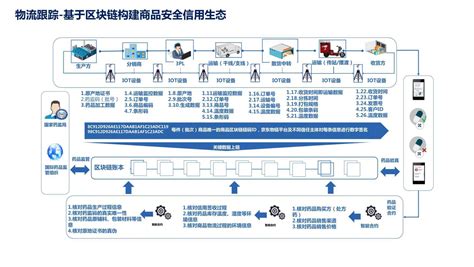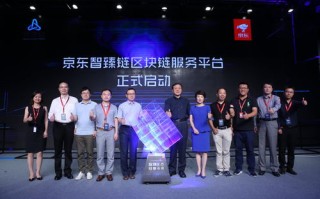Title: Understanding the Blockchain Implementation in JD Logistics
Introduction to JD Logistics:
JD Logistics, a subsidiary of JD.com, is a leading player in China's logistics industry, offering comprehensive supply chain solutions. To enhance transparency, security, and efficiency in its operations, JD Logistics has integrated blockchain technology into its business processes.
Blockchain Basics:
Blockchain is a decentralized, distributed ledger technology that records transactions across multiple computers in a way that ensures the security, transparency, and immutability of data. Each block in the chain contains a cryptographic hash of the previous block, creating a secure link between them.

Blockchain in Logistics:
Implementing blockchain in logistics offers several advantages, including:
1.
Transparency:
Blockchain provides realtime visibility into the movement of goods across the supply chain, enabling stakeholders to track and verify transactions at every stage.2.
Security:
The cryptographic encryption of data ensures that transactions are tamperproof, reducing the risk of fraud or unauthorized access.3.
Efficiency:
By automating processes such as documentation, verification, and payments, blockchain streamlines operations and reduces paperwork, leading to cost savings and faster delivery times.JD Logistics' Blockchain Implementation:
JD Logistics leverages blockchain technology to optimize various aspects of its business operations, including:
1.
Supply Chain Traceability:
Blockchain enables JD Logistics to track the provenance of goods from the point of origin to the final destination. Each product is assigned a unique digital identity recorded on the blockchain, allowing customers to verify its authenticity and quality.2.
Smart Contracts:
JD Logistics utilizes smart contracts to automate and enforce agreements with its partners, carriers, and customers. These selfexecuting contracts automatically trigger actions (e.g., payment release, shipment confirmation) when predefined conditions are met, reducing the need for intermediaries and minimizing disputes.3.
Data Management:
Blockchain ensures the integrity and security of sensitive data, such as inventory levels, delivery schedules, and customer information. By storing data on a decentralized ledger, JD Logistics mitigates the risk of data breaches and enhances data privacy.4.
CrossBorder Trade:
Blockchain facilitates crossborder trade by simplifying customs procedures, reducing paperwork, and expediting the clearance process. JD Logistics' blockchain platform integrates with customs authorities and regulatory agencies to ensure compliance with international trade regulations.Business Process Flow:
The implementation of blockchain in JD Logistics' business processes follows a structured workflow:
1.
Product Authentication:
Suppliers upload product information (e.g., origin, manufacturing date, quality certifications) onto the blockchain platform, where it is recorded and verified. Customers can scan QR codes on products to access this information and confirm their authenticity.2.
Order Management:
When customers place orders on JD.com, smart contracts automatically generate purchase orders and payment instructions. Once the payment is confirmed, the order details are recorded on the blockchain, triggering the fulfillment process.3.
Inventory Tracking:
As products move through the supply chain, their status and location are updated in realtime on the blockchain. JD Logistics' warehouses are equipped with IoT devices and RFID tags that communicate with the blockchain platform, ensuring accurate inventory management.4.
Delivery and Transportation:
Smart contracts govern the allocation of transportation resources and schedule delivery routes based on factors such as distance, capacity, and urgency. Delivery updates, including timestamps and signatures, are recorded on the blockchain for transparency and accountability.5.
Payment and Settlement:
Upon successful delivery, payment is automatically released to suppliers and carriers according to the terms specified in the smart contracts. Blockchain ensures secure and timely transactions, minimizing the risk of payment disputes or delays.Conclusion:
JD Logistics' adoption of blockchain technology revolutionizes the logistics industry by enhancing transparency, security, and efficiency in supply chain management. By leveraging blockchain's decentralized architecture and smart contract capabilities, JD Logistics delivers greater value to its customers, partners, and stakeholders, setting new standards for innovation in the logistics sector.
References:
JD Logistics Official Website
"Blockchain in Logistics: A Blueprint for Success" World Economic Forum
"Supply Chain Management in the Blockchain Era" Harvard Business Review
标签: 区块链京东物流业务流程图 京东区块链开放平台 区块链京东物流业务流程是什么


